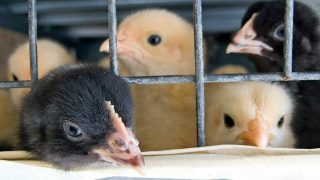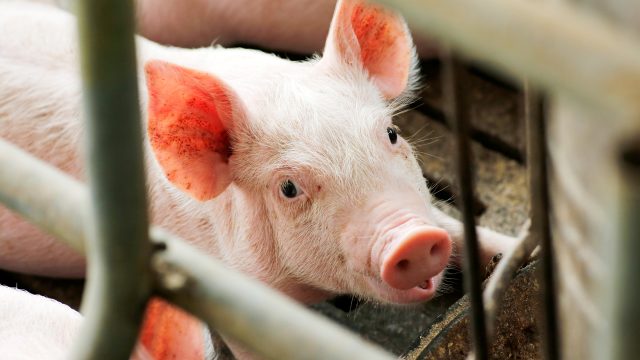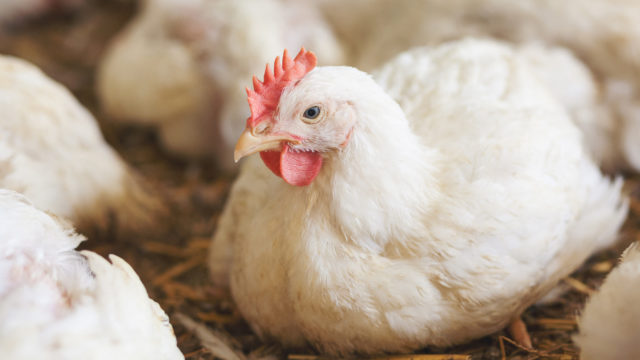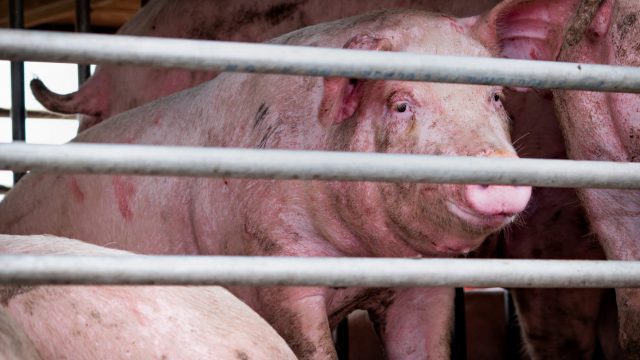
Why is FDA Ignoring Actual Consumer Deception in Egg Labeling, While Hounding a Humane, Plant-Based Mayo?
The FDA is in serious need of a reality check. Part of the FDA’s mandate is to police labels that might confuse and trip up customers. But recent reports indicate that the agency is going seriously astray in prioritizing its enforcement resources in this area. On Tuesday, the New York Times reported that the FDA sent a warning letter to plant-based mayo company Hampton Creek, regarding alleged misleading labeling of the company’s Just Mayo products. Hampton Creek’s sin? Selling a plant-based sandwich spread labeled as “mayo,” while omitting eggs. If this strikes you as bizarre, it’s because arcane federal food standardization rules require that products labeled “mayonnaise” contain eggs. To the FDA, “mayo” means “mayonnaise,” and that’s that. Never mind that Hampton Creek’s product does not use the word “mayonnaise,” and, in fact, clearly features the words “Vegan” and “Egg-Free” on the label. Even more puzzling, the FDA has gone out of its way to clarify that “mayonnaise dressing” is an acceptable term for mayonnaise alternatives, meaning that products labeled “mayonnaise dressing” can be egg-free. Ignoring this, the FDA speciously argued that Just Mayo is misleading, and devoted agency resources to punishing this environmentally-friendly, humane product for daring not to contain eggs. Sound fair to you?
In a similar vein, the FDA is also ignoring the elephant (or rather, battery-caged hen) in the room when it comes to consumer deception in egg labeling. While the FDA devotes agency resources—resources it claims are scarce—to penalize food innovators producing environmentally-friendly and humane products, it ignores the staggering consumer deception perpetrated by egg sellers. Egg labels routinely mislead consumers with exaggerated claims of hen welfare, meaningless terms like “natural” and “farm fresh,” and deceptive images of happy hens pecking in green pastures. All the while, egg companies hide the grim reality that approximately 95 percent of egg-laying hens are crammed in tiny, filthy battery cages, suffering miserably. No label tells consumers this all-important fact about eggs. Purchasers are also kept in the dark as to the safety of these eggs, given the greater risk of Salmonella contamination in eggs from battery-caged hens.
Despite consumers clamoring for the information, the FDA has protected battery cage egg producers by refusing to require that companies tell them, through clear, consistent labeling on the carton, whether eggs come from caged, cage-free, or free-range hens. This consumer protection concern was first brought to the agency nearly a decade ago, in a 2006 federal petition seeking to mandate this disclosure of egg production methods on cartons. The agency’s obstinate refusal to alleviate egg carton deception led the Animal Legal Defense Fund (ALDF), Compassion Over Killing, and concerned egg purchasers to sue the FDA in 2013. The Animal Legal Defense Fund and COK’s case is now on appeal before the Ninth Circuit Court of Appeals.
While we wait for the Court to provide consumers with the relief the FDA has refused to provide, ALDF sent a Freedom of Information Act (FOIA) request to the FDA to get to the bottom of the agency’s targeting of plant-based products and acceptance of egg carton deception. We won’t sit by while the agency gives egg producers a free pass to mislead purchasers, while persecuting companies trying to do the right thing.
Focus Area
Related
-
U.S. Supreme Court Declines Review of California’s Landmark Proposition 12 Animal Cruelty Law
The Animal Legal Defense Fund helps protect the strongest farmed animal protection law in the countryJuly 2, 2025 News -
Settlement Reached in California Water Use Lawsuit against Foster Poultry Farms
Foster Poultry Farms agrees to improve water conservation and animal welfare at its Livingston, California poultry-processing plantApril 21, 2025 Press Release -
Lawsuit Filed Demanding FDA Respond to Petitions Seeking to Ban Ractopamine
FDA’s approval for ractopamine relied primarily on safety studies conducted by the drugmaker.March 26, 2024 Press Release



